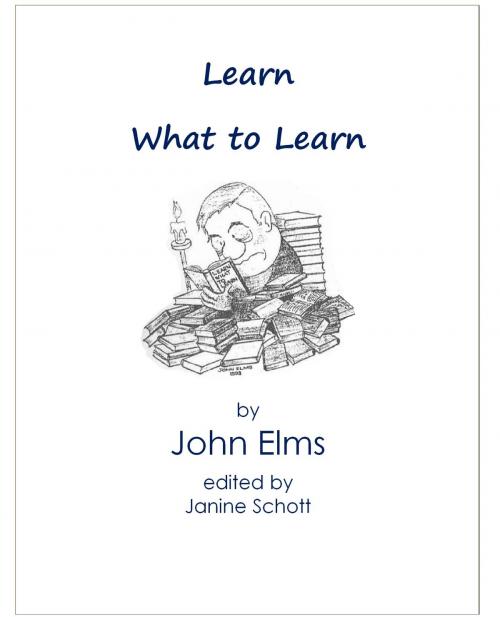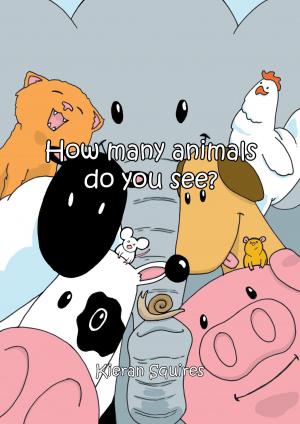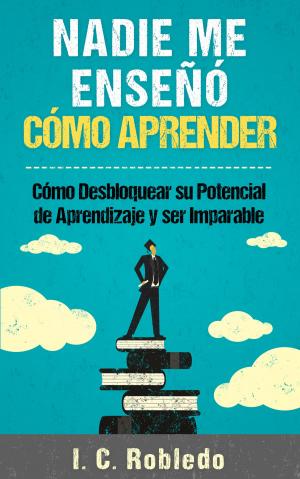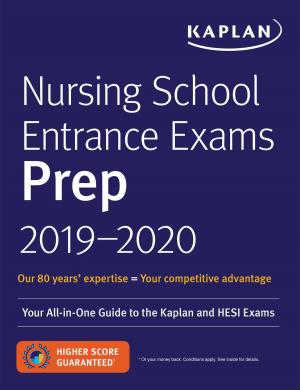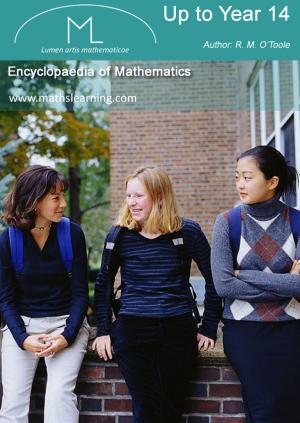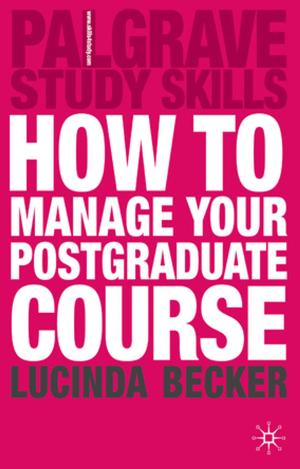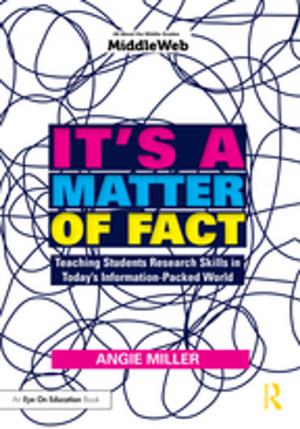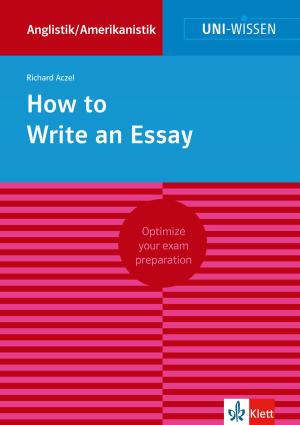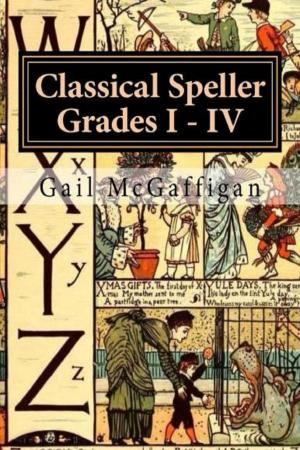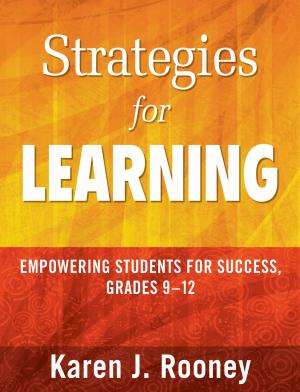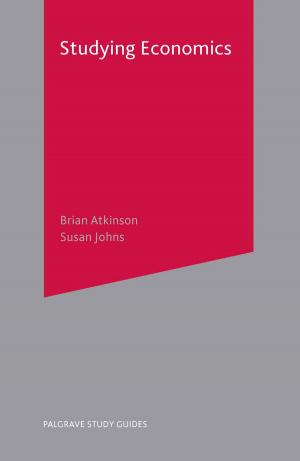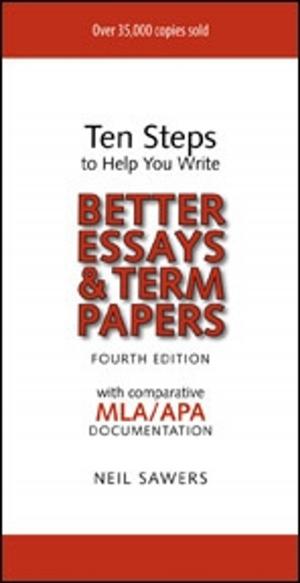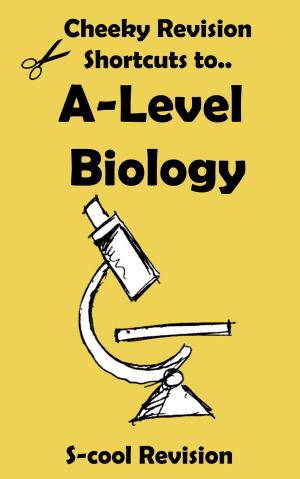| Author: | Janine Schott | ISBN: | 9781458095336 |
| Publisher: | Janine Schott | Publication: | May 28, 2011 |
| Imprint: | Smashwords Edition | Language: | English |
| Author: | Janine Schott |
| ISBN: | 9781458095336 |
| Publisher: | Janine Schott |
| Publication: | May 28, 2011 |
| Imprint: | Smashwords Edition |
| Language: | English |
This work is dedicated to making matters of fundamental importance as simple as possible.
Two military maxims are fundamental to this simple approach towards achieving better grades. The first is Know Your Enemy. In terms of senior secondary school or post compulsory education studies this translates to Know what is expected or required of you. The second military maxim, Time spent in reconnaissance is seldom wasted, is the complementary co-justification for this simple strategy. The logic of this approach is that, once you realise what has to be learned for the best chance of better grades and how to go about finding out about this information, you will be better able to allocate your time and effort to maximum effect.
Implementing this suggested strategy is a form of empowerment. That is, you can provide yourself with your best chance of success. This empowerment will be achieved principally because you have been introduced to the fundamentally important concept of how to concentrate your efforts on those aspects of a secondary or post compulsory education course or unit that are most likely to result in the highest possible mark or grade. That is, you are playing with the odds; not against them.
Remember, when all the dust has settled, it is what appears on your academic record (i.e. your results sheet) that counts most, as far as others are concerned. You will hear irrelevancies about how you should immerse yourself in 'university life' via activities other than study. If you do this to the detriment of achieving your best possible results, then you will have spoilt the initial opportunity that is the starting point of the majority of the rest of your life (i.e. your occupation) and the rewards it brings.
Leave the 'immersion' to others. Focus your attention on what to learn; then efficiently and effectively concentrate your efforts so that you will be able to represent yourself best whenever assessment of your progress is conducted.
In addition, be aware of the fact that senior secondary and post compulsory education, like any form of gainful or purposeful employment, is heavily dependent upon basic skills and associated systematic processes. Learn these basic skills and the fundamental processes of scholarship and you will better equip yourself. Better results will build confidence in yourself.
Begin your crusade to achieve your best possible results from the first day of each semester or term. Seek out what has been asked in the past. This will most likely provide you with an understanding of what has been identified by past examiners as being the essence, i.e. the important or the relevant content of the discipline, course or unit being studied.
Using the set textbook, you should be able to begin to outline the important elements or aspects of each concept that has been asked in past examination questions. This procedure of outlining and clarifying (or 'mapping') the important aspects of a concept is crucial to success and must be practised properly and regularly.
Read this work carefully, several times. Concentrate on learning what appears to be its relatively simple recommendations. You will be inordinately rewarded if you make yourself proficient in these simple strategies.
* * *
John Elms spent more than 20 years at the University of Southern Queensland in Toowoomba Queensland. During this time he has conducted comprehensive applied research in regard to improving higher education student productivity. After directly observing many novice higher education students struggling with the various forms of 'progressive assessment' he formulated a simple and practical set of productivity strategies to cope with the most common forms of assessment.
The results achieved by students who have adopted his strategies have acted as the right kind of advertisement. His books are respected by students because the strategies described in them are easy for most students to implement and readily produce improved results.
This work is dedicated to making matters of fundamental importance as simple as possible.
Two military maxims are fundamental to this simple approach towards achieving better grades. The first is Know Your Enemy. In terms of senior secondary school or post compulsory education studies this translates to Know what is expected or required of you. The second military maxim, Time spent in reconnaissance is seldom wasted, is the complementary co-justification for this simple strategy. The logic of this approach is that, once you realise what has to be learned for the best chance of better grades and how to go about finding out about this information, you will be better able to allocate your time and effort to maximum effect.
Implementing this suggested strategy is a form of empowerment. That is, you can provide yourself with your best chance of success. This empowerment will be achieved principally because you have been introduced to the fundamentally important concept of how to concentrate your efforts on those aspects of a secondary or post compulsory education course or unit that are most likely to result in the highest possible mark or grade. That is, you are playing with the odds; not against them.
Remember, when all the dust has settled, it is what appears on your academic record (i.e. your results sheet) that counts most, as far as others are concerned. You will hear irrelevancies about how you should immerse yourself in 'university life' via activities other than study. If you do this to the detriment of achieving your best possible results, then you will have spoilt the initial opportunity that is the starting point of the majority of the rest of your life (i.e. your occupation) and the rewards it brings.
Leave the 'immersion' to others. Focus your attention on what to learn; then efficiently and effectively concentrate your efforts so that you will be able to represent yourself best whenever assessment of your progress is conducted.
In addition, be aware of the fact that senior secondary and post compulsory education, like any form of gainful or purposeful employment, is heavily dependent upon basic skills and associated systematic processes. Learn these basic skills and the fundamental processes of scholarship and you will better equip yourself. Better results will build confidence in yourself.
Begin your crusade to achieve your best possible results from the first day of each semester or term. Seek out what has been asked in the past. This will most likely provide you with an understanding of what has been identified by past examiners as being the essence, i.e. the important or the relevant content of the discipline, course or unit being studied.
Using the set textbook, you should be able to begin to outline the important elements or aspects of each concept that has been asked in past examination questions. This procedure of outlining and clarifying (or 'mapping') the important aspects of a concept is crucial to success and must be practised properly and regularly.
Read this work carefully, several times. Concentrate on learning what appears to be its relatively simple recommendations. You will be inordinately rewarded if you make yourself proficient in these simple strategies.
* * *
John Elms spent more than 20 years at the University of Southern Queensland in Toowoomba Queensland. During this time he has conducted comprehensive applied research in regard to improving higher education student productivity. After directly observing many novice higher education students struggling with the various forms of 'progressive assessment' he formulated a simple and practical set of productivity strategies to cope with the most common forms of assessment.
The results achieved by students who have adopted his strategies have acted as the right kind of advertisement. His books are respected by students because the strategies described in them are easy for most students to implement and readily produce improved results.
